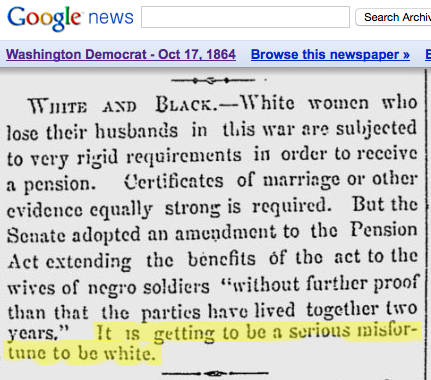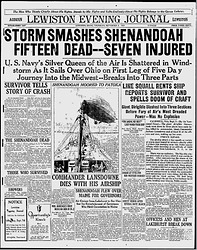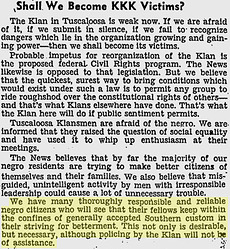I like to read old newspapers. It’s an endlessly fascinating window into history. Obviously contemporaneous journalism shouldn’t be mistaken for history. Most of it is probably close to true, but never the whole truth. Nevertheless, it reveals at least what people were exposed to as part of their day-to-day lives.
Google had a project for digitizing newspapers, and although it ended years ago, the archive is still freely available at Google News Archive Search. There are lots of obscure papers, short-lived papers, and Canadian papers (many in French). But also a lot of complete collections of papers that span decades (e.g., 38,000 issues of the Reading ¶ Eagle from 1868-2008).
Sometimes it’s interesting to pick a noteworthy event (e.g., the Scopes Monkey Trial) and explore how it was covered at the time it happened. And that coverage of course might be different in different parts of the country.
But more often, I’ll just start exploring randomly. It’s almost impossible not to find something interesting that leads to further research. I came across the page at the top a few months ago while wandering aimlessly through 1925 (reading mostly about battles between Prohibition agents and moonshiners). At first I thought it was a nautical disaster and was confused about how it had happened in Ohio. I simply had no idea the US Navy had a fleet of Airships (i.e., Blimps) in service in 1925. This led to me getting sidetracked into research about this disaster, and then airships in general including their role in polar exploration in the 1920s.
I find myself drawn to exploring coverage of racial politics and racial violence, especially in Southern newspapers. Mini race riots, Klan meetings, editorials about civil rights, etc.
I found a 1949 week-long series of articles in the Tuskaloosa News about local Klan activity. I was prepared for the worst, but it was surprisingly anti-Klan. It’s a bit nuanced, but while the paper seems to agree with the general aims of the Klan, they take great issue with their terrorist tactics and secrecy and think the organization is counter-productive. From an editorial published at the end of the series:
Often there’s something that seems interesting but lacks context. Townsend, Montana, 1897:
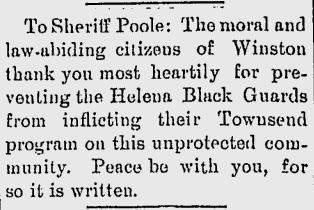
I wondered what this was about and kept looking until I found just the bare bones of a story about a famous big-city (Helena!) Black boxer who runs into trouble with the local Sheriff when he tries to bring his traveling boxing exhibition to town. How is this not a movie starring Michael B. Jordan as Ike Hayes and Tommy Lee Jones as Sheriff Poole?
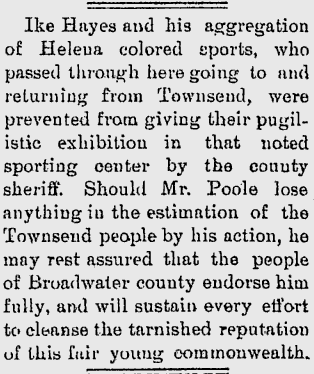
Finally, the greatest nugget I’ve unearthed, demonstrating that snarky petty White grievance goes back farther than you might think.
